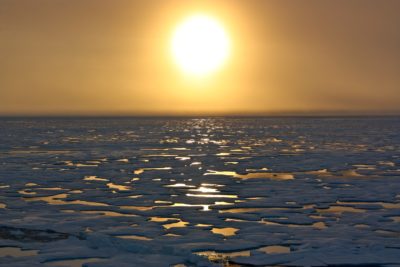Next week, the United Nations Intergovernmental Panel on Climate Change (IPCC) will unveil its latest scientific assessment, widely considered the most authoritative review of climate research. But ahead of its release, scientists have had to grapple with the fact that several next-generation models used in the assessment project that the Earth will warm far faster than previous estimates, Science reported.
“You end up with numbers for even the near-term that are insanely scary — and wrong,” Gavin Schmidt, director of NASA’s Goddard Institute for Space Studies, told Science.
For each IPCC report, scientists compile the results of numerous climate models from around the globe showing how the planet will respond to varying levels of emissions. Past models showed that a doubling of atmospheric carbon dioxide would lead to warming of 2 degrees C to 4.5 degrees C. Many new models, however, show that doubling CO2 would lead to warming of more than 5 degrees C, exceeding all expectations, Science reported.
Because intensive human-caused climate change has persisted how for more than a half-century, however, scientists can now use data on actual warming in recent decades to refine temperature projections, and the IPCC is likely to do so, Science reported. Research shows that using global warming data from the last few decades can reduce uncertainty and lower the most extreme projections. A 2020 paper evaluated current warming trends, data on past climate change, and research on climate feedback effects, and determined that doubling the concentration of atmospheric carbon dioxide would warm the Earth between 2.6 degrees C and 3.9 degrees C, substantially narrowing the projected temperature range offered by climate models.
While a robust scientific record of recent warming is helping to produce more precise projections, it also a worrying reminder of how long humans have been altering the climate, Aurélien Ribes, a climate scientist at France’s National Centre for Meteorological Research, told Science. “Observations now provide a clear view for what climate change will be.”



